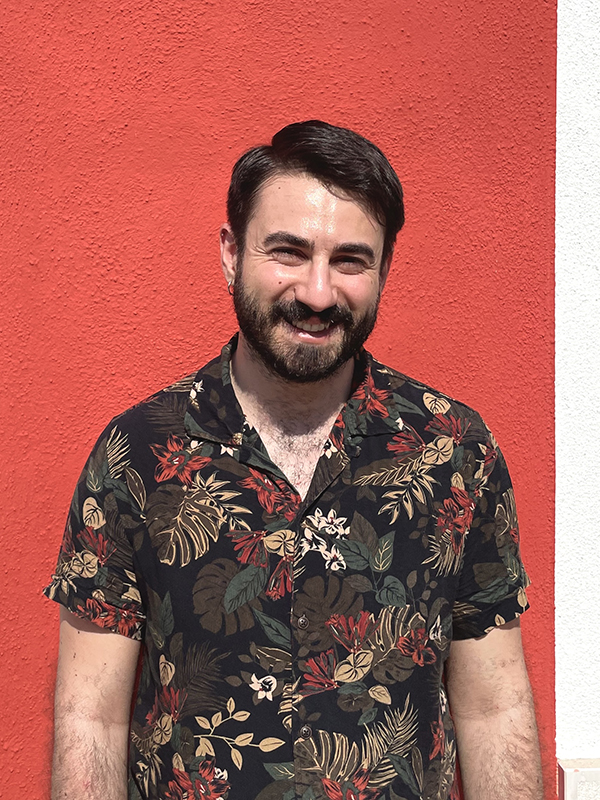
Erdem İdil is a PhD candidate in the Department of History at the University of Toronto. Before coming to Toronto, he completed a BA in Political Science and International Relations at Istanbul University and an MA in History at Boğaziçi University.
The research he will be undertaking during his residency at ANAMED focuses on the intimate histories of the Ottoman and Venetian Empires with an emphasis on texts, spaces, and networks in eighteenth-century Istanbul. Erdem’s research interests include the early modern Mediterranean, historical anthropology, and social histories of space, food, and disease.
As a PhD fellow in ANAMED’s cohort of 2023–2024, I have spent the most entertaining and productive year thus far in my program. My experience here has been rewarding in many ways: I remember being constantly in awe of how closely located I was to the places where the subjects of my dissertation lived centuries ago while also feeling incredibly lucky to be surrounded by the most brilliant minds with whom I shared a lot, both intellectually and personally, along the way.
Prior to my arrival at ANAMED in the fall of 2023, I completed extensive archival research in Venice. Upon landing in Istanbul, I took advantage of the convenient location of ANAMED and regularly visited the Center for Islamic Studies (ISAM), the Directorate of State Archives, the Manuscript Library of Topkapi Palace Museum, and the Süleymaniye Manuscript Library to collect documents that can only be requested in person. Among these were court records, imperial orders, fetva collections, manuscripts, and visual materials, all of which were crucial to bringing my dissertation to completion. I dedicated much of my time at ANAMED to transcribing and studying these materials. This months-long, demanding work allowed me to rework my dissertation’s conceptual and material framework and produce multiple chapter drafts. In fact, in November, I had a chance to present one of these chapters, titled “Translating the Archive, Archiving the Translator: Everyday Histories of Venetian Dragomans in Early Modern Istanbul” at the 54th Annual Meeting of MESA (Middle East Studies Association) in Montreal. In this paper, I tried to explore how the textual intimacies between the Ottomans and Venetians affected the everyday lives of Venetians and their employees in Istanbul. It was also my first solid attempt to analyze some of my dissertation materials comprehensively.
Between December and April, I resumed working on archival documents and chapter drafts. I put together all my new findings from this period and shared them with my fellow friends during my in-house presentation at ANAMED. This presentation was a unique opportunity for me to showcase some of the materials and conceptualizations pertaining to my dissertation project, tentatively titled “Intimate Histories of the Ottoman and Venetian Empires: A View from Eighteenth-Century Istanbul,” in which I try to understand how subjects who operated under both Ottoman and Venetian jurisdictions inhabited and mediated textual, intimate, and social spheres in early modern Istanbul. By following the circulation of documents, materials, people, and diseases within and across the Ottoman and Venetian Empires, I explore the intimate and everyday matters of these subjects who resided in and passed through Istanbul between 1670 and 1797.
In the meantime, I was able to attend numerous conferences, symposia, and talks that took place at ANAMED and elsewhere at neighboring institutions in Istanbul. It was a delightful experience to get to know and exchange ideas with a new and diverse group of academics and researchers. I was equally pleased to have run into some of my former colleagues, friends, and advisors and had lovely conversations with them.
More recently, in May, I had the privilege to co-organize a special workshop with my supervisor at the University of Toronto, Natalie Rothman, as part of the Dragoman Renaissance Research Platform. Thanks to the generosity of the ANAMED staff and administrators, who kindly agreed to provide us with the venue and host the event, we introduced our digital humanities project and its infrastructure to a broader audience consisting of faculty and graduate students based in Istanbul. During the workshop, we test-drove some of our approaches and talked about how they might be helpful for other related projects. We tried to address some broader questions that have animated our project, as well as the challenges and rewards of collaborative research and processes of cultural mediation in the early modern Mediterranean more generally. At the end of the workshop, we and the workshop participants discussed how the study translation practices could leverage multiple linguistic and methodological competencies and in what ways we can make better use of current and new digital tools when working with historical sources.
I am deeply grateful for the unwavering support and hospitality extended to me by the ANAMED team. Their generosity, especially that of Chris, Duygu, Yağmur, Ayşen, Emir, and Özge, has been instrumental in my academic progress. I also want to express my heartfelt thanks to my fellow friends for their camaraderie and intellectual exchange.

